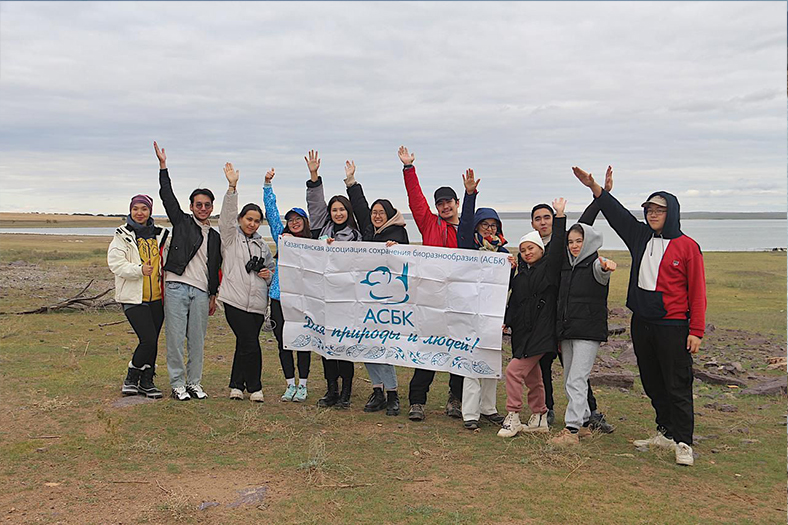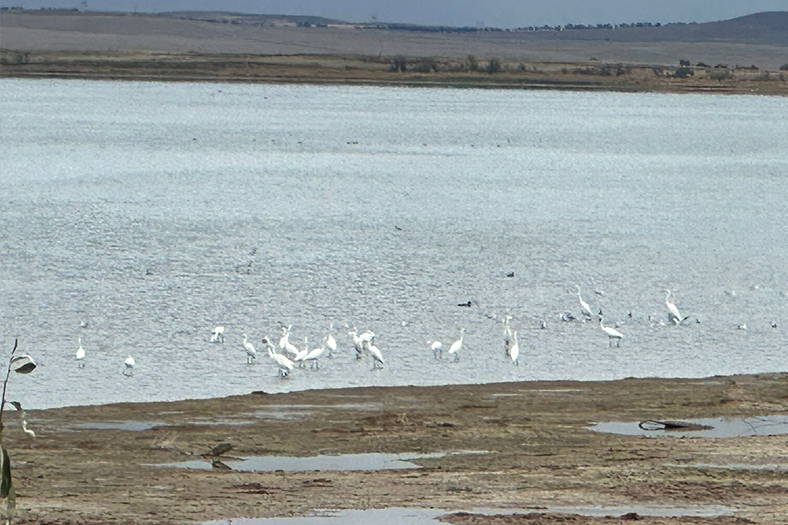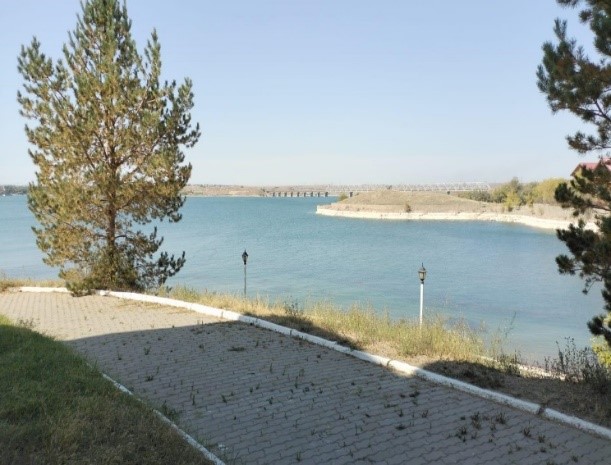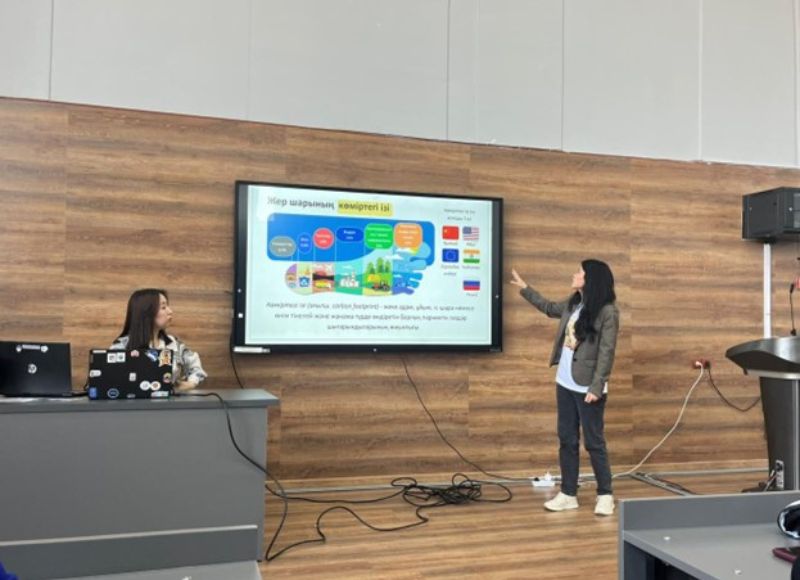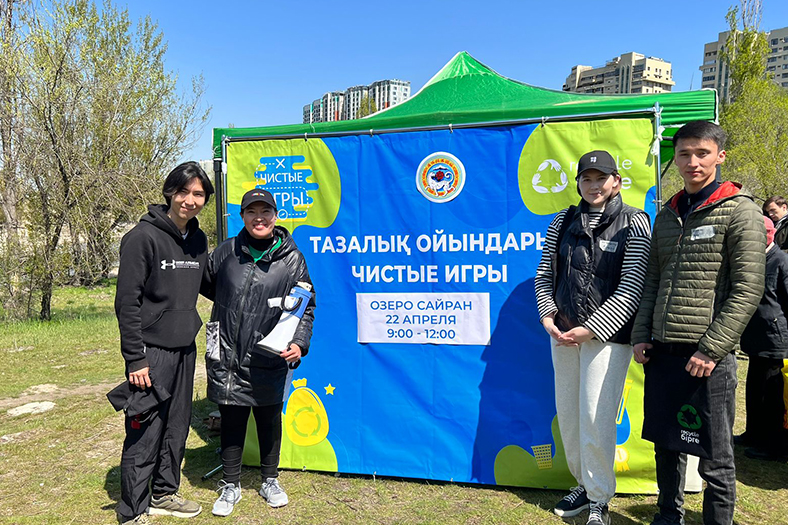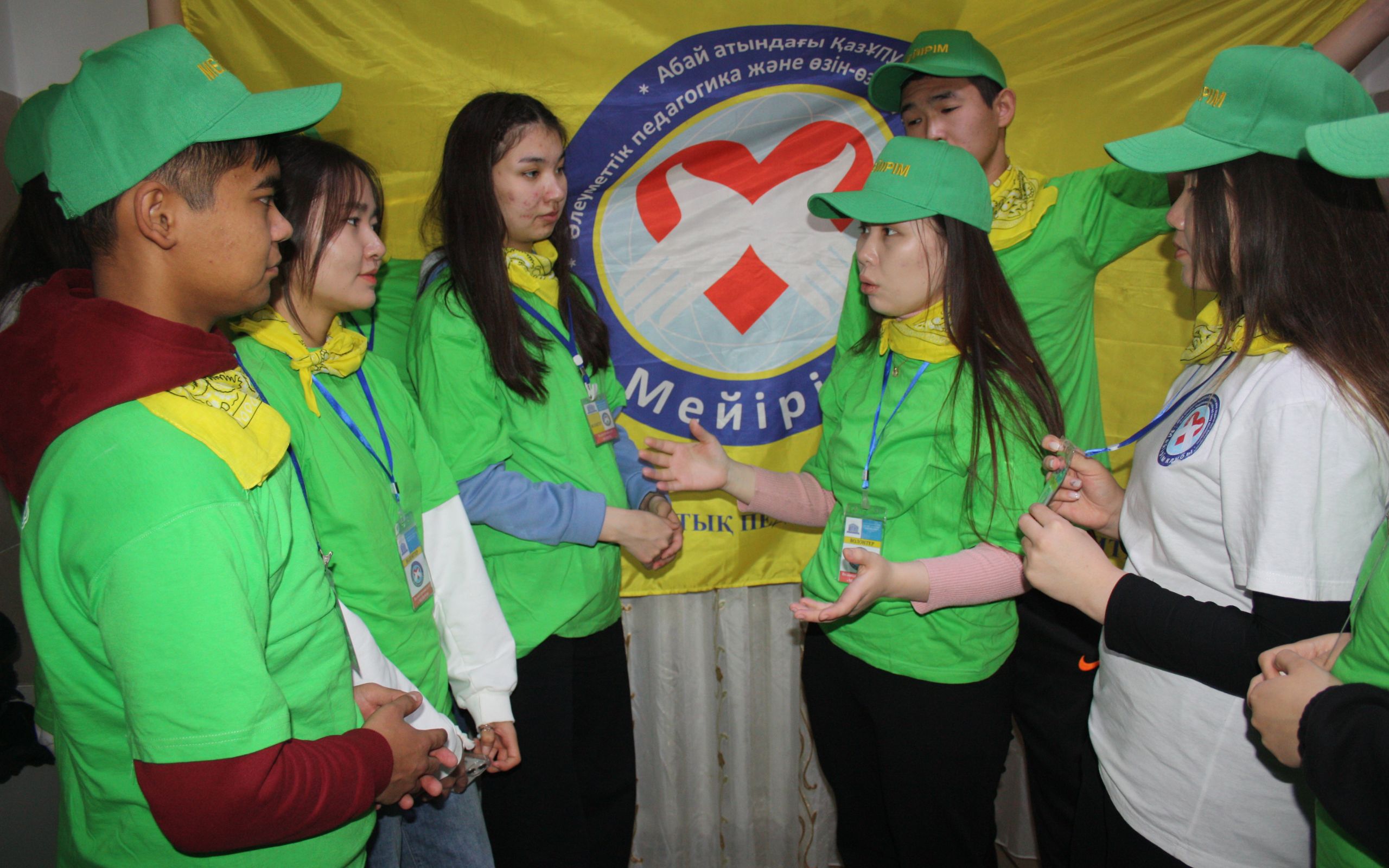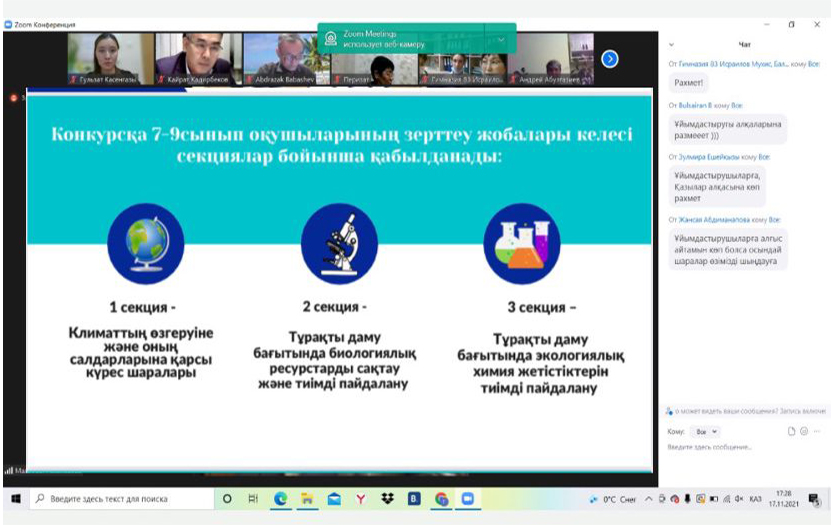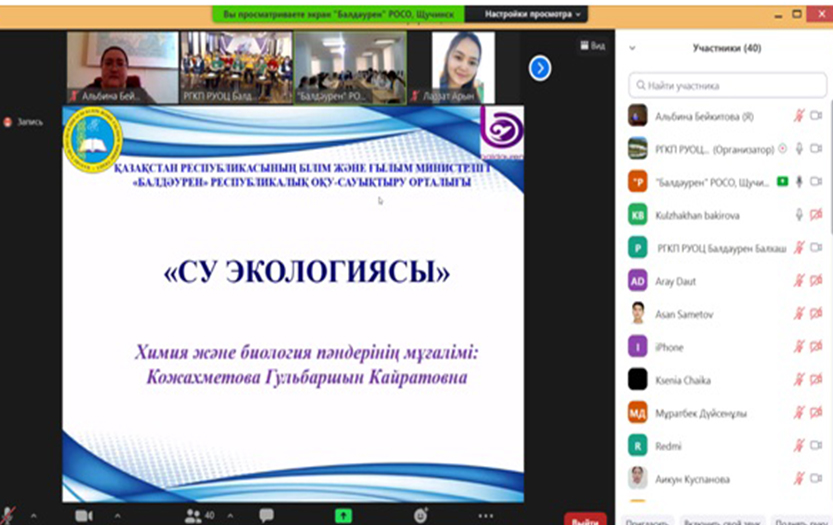Activities of the Kazakh National Pedagogical University named after Abay 2020-2021 academic year
Targets for SDG 14:
-
By 2025, prevent and significantly reduce all marine pollution, including from land-based activities, including marine debris and nutrient pollution.
-
By 2020, manage and protect marine and coastal ecosystems to prevent significant adverse impacts, including by increasing the resilience of these ecosystems, and take measures to restore them to good ecological status and productivity of the oceans.
-
Minimize and address the impacts of ocean acidification, including through scientific cooperation at all levels.
-
By 2020, effectively regulate harvest and end overfishing, illegal, unreported and unregulated fishing and destructive fishing practices, and implement science-based management plans to rebuild fish stocks as soon as possible, at least to levels that can maximize sustainable yields based on the biological characteristics of those stocks.
-
By 2020, incorporate conservation measures in at least 10 per cent of coastal and marine areas in accordance with national and international law and on the basis of the best available scientific information.
-
By 2020, prohibit certain forms of fisheries subsidies that contribute to overcapacity and overfishing, eliminate subsidies that contribute to illegal, unreported and unregulated fishing and refrain from introducing new such subsidies, recognizing that the appropriate and effective application of special and differential treatment to developing and least developed countries should be an integral part of negotiations on
-
By 2030, improve the implementation of the fisheries subsidies for developing and least developed countries.
By 2030, increase the economic benefits to small island developing States and least developed countries from sustainable use of marine resources, including through sustainable fisheries, aquaculture and tourism.
-
Increase scientific knowledge, research and transfer of marine technology, taking into account the Intergovernmental Oceanographic Commission Criteria and Guidelines on the Transfer of Marine Technology, to enhance the ecological status of the ocean environment and the contribution of marine biodiversity to the development of developing countries, especially small island developing States and least developed countries.
-
Ensure access of small-scale artisanal fishers to marine resources and markets.
-
Improve the conservation and sustainable use of the oceans and their resources by complying with international law embodied in the United Nations Convention on the Law of the Sea, which, as noted in paragraph 158 of The Future We Want, provides the legal framework for the conservation and sustainable use of the oceans and their resources.
Source: https://www.un.org/sustainabledevelopment/ru/oceans/
"The oceans are a source of critical natural resources, including food, medicine, biofuels and other products. They help break down and dispose of waste and pollution, and their constituent coastal ecosystems act as buffers that reduce storm damage. Keeping oceans healthy enhances climate change mitigation and adaptation. Have you ever been to the sea? It's also a great place for tourism and recreation. In addition, marine protected areas help reduce poverty through increased fish catch and income, as well as beneficial health effects. They also improve gender equality, as women do a large percentage of the work in small-scale fisheries. In addition, the marine environment is home to an incredible number of beautiful creatures, from single-celled organisms to the largest animal that ever lived on Earth, the blue whale. The marine environment is also home to coral reefs, one of the most diverse ecosystems on our planet."
Read the full article "SAVING MARINE RESOURCES: WHY IT IS IMPORTANT" here: https://www.un.org/ru/development/devagenda/pdf/Russian_Why_it_matters_Goal_14_LIfeBelowWater.pdf
